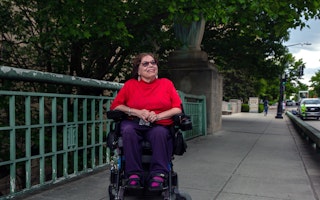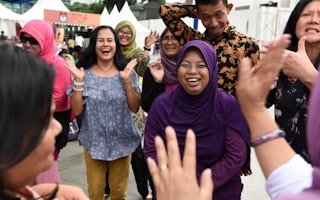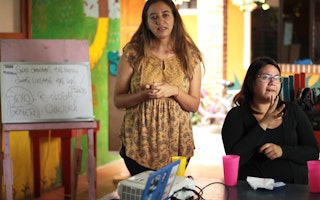Why Is the World Bank Excluding People with Disabilities?
By Jens Trummer
This is an opportune moment. The World Bank is currently reviewing its policies related to environmental and social safeguards on investments. That the Bank has until now not taken into account the rights and needs of people with disabilities in these policies is a blatant disregard of basic human rights that must be rectified.
The World Bank provides loans to developing countries worth millions of dollars every year to finance infrastructure projects. Prior to the loans being made, the infrastructure projects must pass rigorous examination to ensure that all adverse impacts on the environment and on people are identified. If the potential impacts are servere, projects may be cancelled altogether. For less severe impacts, designs are ammended and project activities altered. These rules are clearly set out in the Bank’s Social and Environmental Safeguard Policies. But these policies fail to include guidelines to ensure that projects take people with disabilities into account.
Development projects and policies that are not inclusive are discriminatory and affect people with disabilities disproportionately. As it stands, people with disabilities who live in a house that will be appropriated by the government because it lies within a World Bank financed road expansion project risk neither being properly informed, nor receiving appropriate compensation. Often people with disabilities are poor and face disproportionate financial, physical, and emotional stress when their living environment–and in some cases economic activity–changes.
People with disabilities cannot get involved in the planning stages and provide feedback on proposed infrastructure development projects that affect their homes if they are not even being consulted beforehand. Public consultations are carried out without their participation, and the documentation that is provided is not made accessible to people with intellectual disabilities. It is vital that the World Bank–and its development partners–begin to include in their stakeholder analysis and public consultations people with disabilities, and this consultation requirement must be set out in its Safeguard Policies.
As it happens, the World Bank is in the process of modernizing its policies–a process which will last two years and be completed by 2014. Now is the time for the Bank to include all people in its Safeguard Policies. But the Bank must also go a step further: new projects must be expressly designed to reduce poverty among people with disabilities who are among the world’s poorest and most vulnerable.
About 80 percent of the world’s estimated 1 billion people with disabilities live in developing countries, most of them in abject poverty. It is a well-known fact that poverty and disability mutually reinforce each other and lead to a downwards spiral. In spite of their numbers, they have been systematically left out of development programs and national policies. This exclusion violates their rights and excludes them from opportunities to benefit from national programs, including poverty reduction projects. People with intellectual disabilities or mental health problems face particularly extreme discrimination and exclusion from society, with hundreds of thousands living in isolated long-stay residential institutions.
In January, Results International released a report documenting how the World Bank falls drastically short in making education available for children with disabilities in its education aid programs in Indonesia, Papua New Guinea, and the Philippines. According to the report, “the World Bank talks about disability a lot in its program design but few of its programs address specific measures for access by marginalized groups, including those with disabilities and special needs. None of the Bank’s programs in the three countries mentioned disability in their evaluations.”
The World Bank commissioned a report in 2006, Making Inclusion Operational, that is meant to provide guidelines and resources for Bank staff to include “disability issues” in investment projects. Six years later it is high time that the World Bank act on this and design poverty reduction projects that include the world’s most neglected, vulnerable, and poor.
Until January 2015, Jens Trummer was a program officer with the Open Society Mental Health Initiative.


